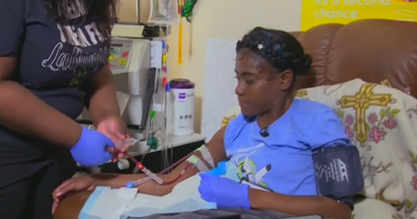Organ Transplant Crisis in the USA
More than 100,000 people in the USA are waiting for an organ transplant. But only a little more than half of them will receive an organ within five years. An investigation of the congress now raises serious questions as to whether non-profit groups who want to secure organs for transplants from deceased donors are doing their job effectively.
Inefficiencies in the System
The groups, which are referred to as organ procurement organizations or OPOs, "fail" to secure many organs that could be restored, such as a subcommittee of the house, which examines organ donation and the transplant system. "Seventeen to 20 people die on the waiting list a day because they cannot get organs and the OPOs simply do not recover enough organs and make sure they deal with people they need," said Rep. Raja Krishnamoorthi, who runs the house subcommittee.
Lack of Transparency and Accountability
In August, the Senate finance committee said a 2.5-year examination from top to bottom, the US transplant network does not work and endangers the life of the Americans. The subcommittee of the house asked questions about whether the data provided by OPOs were "inaccurate and incomplete". "If you don’t have any proper data, you do not know which organs exist and can deal in people you need," said Krishnamoorthi.
Defending the System
Several OPOs told CBS News that their data are "exactly" and that they are obliged to save lives. The United Network for Organ Sharing, UNOS, said his "systems are checked annually". "The data clearly show that our transplant system is increasingly successful over the year over the year," said Dr. Matt Cooper from UNOS in May, when he was CEO.
Criticisms and Concerns
But not everyone in the system agrees. Matt Wadsworth, head of the life connection, an OPO in Ohio, said he believes that many OPOs fails nationwide. During his interview, he became emotional, broke together in tears and went for a moment to compose himself. "There are people die," he said. In the first two years of Wadsworth in his organization, they doubled the number of organ donors in his region, which saved much more life.
Manipulation of Data
When manipulating their data, OPOs made it look as if they were to take every opportunity every time, they converted every possible patient into a successful organ donor. "And that’s just not the truth," he said. "And they are the same bad players. If you look at the data, it is the same people who are low-performance year after year."
The Human Cost
One of these patients is Laquayia Goldring, who has been waiting for a kidney transplant for seven years to keep her alive. For four hours a day, five days a week, she sits at a machine for dialysis at home – the only way to clean her blood while waiting. "I only have a shot on a transplant, and until I get this call, my life depends on a machine," she said. "Many dialysis patients sit around like me and just ask themselves: ‘When do we get the call?’" "I have the feeling that the longer I wait, the closer I am to death," she said.

